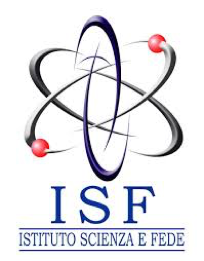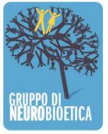



17th SUMMER COURSE IN BIOETHICS July 9 to 13, 2018 – Rome Italy
Human Enhancement: Bioethical Challenges of Emerging Technologies
17th Summer and International Refresher Course in Bioethics will take place from July 9 to 13, 2018 at our University Campus: Via degli Aldobrandeschi 190. 00165 Rome. Italy. The course, entitled Human Enhancement: Bioethical Challenges of Emerging Technologies, will be offered in English.
The course is organized by the School of Bioethics with the collaboration of the UNESCO Chair in Bioethics and Human Rights established at the Pontifical Regina Apostolorum Athenaeum and with the Università Europea di Roma.
Why this subject?
Human enhancement technologies are used not only to treat diseases and disabilities, but also to increase human capacities and qualities (motor, mental, emotional and aesthetic, and so on). Certain enhancement technologies are already available, for instance, reproductive technologies and plastic surgery. Other technologies are called emerging due to their innovative aspect, such as genetic engineering. There are also speculative technologies, which are only a work hypothesis in biomedical research, for example, mind uploading.
A study and analysis of human behaviour, as well as the research, production and use of these technologies from bioethical, social, and legal standpoints, seem appropriate and necessary. On the one hand, the scientific community has taken an increasing interest in these innovations and allocated substantial public and private resources to them. On the other hand, such research can have an impact, positive or negative, on individuals, the society, and future generations.
Some have advocated the right to use such technologies freely, considering primarily the value of freedom and individual autonomy for those users. Others have called attention to the risks and potential harms of these technologies, not only for the individual, but also for society as a whole. Such use, it is argued, could accentuate the discrimination among persons with different abilities, thus increasing injustice and the gap between the rich and the poor. There is a dilemma regarding how to regulate such practices through national and international laws, so as to safeguard the common good and protect vulnerable persons.
Some topics:
- The dream of “improving” humanity: Convenience, temptations and challenges of perfection and immortality.
- Science and technology serving the person (body, mind, spirit).
- Body and mind control: emerging and converging improvement technologies.
- Theories and arguments for and against enhancement.
- Interventions on humans: therapy and enhancement.
- Genetic and biological enhancement: living healthier and living longer.
- Neuro-cognitive enhancement: becoming smarter.
- Neuro-emotional enhancement: becoming more empathic.
- Motor enhancement: becoming stronger, and faster. Sports performance and doping.
- Aesthetic enhancement: becoming more beautiful.
- Moral enhancement: become more social and better citizens.
- Gender perspective and enhancement.
- Human-machine interaction and robotics.
- Military use of human enhancement.
- Cultural and religious views on enhancement.
- Impact of enhancement on human nature, freedom, justice and the common good.
- National and international regulation on enhancement and impact on human rights.
- Nature and humanity in transhumanism and posthumanism.

